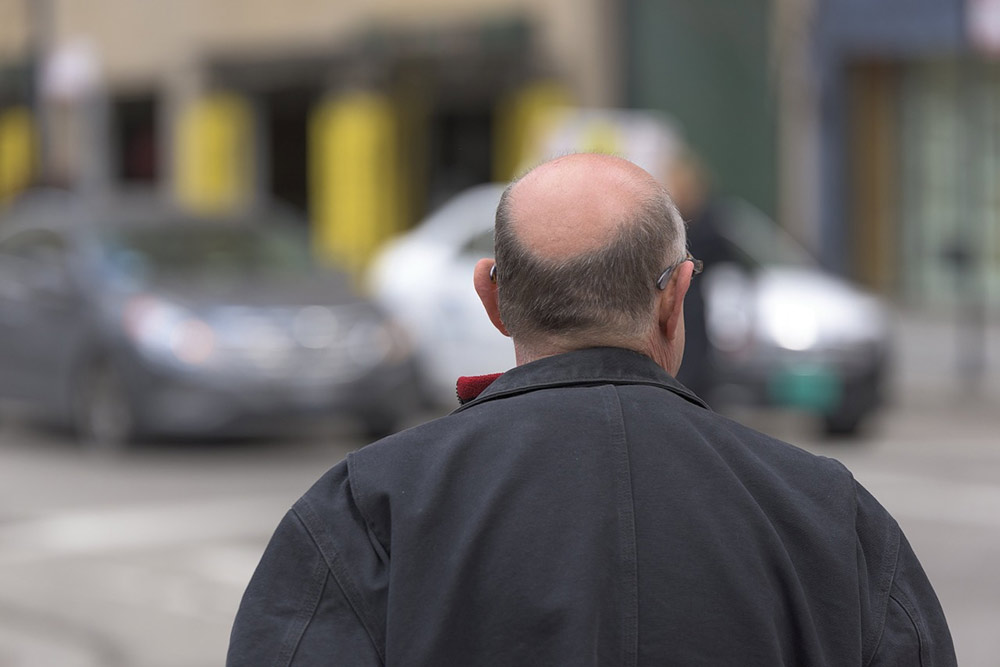Prostate problems
Category : Ailments

Prostate problems affect many men after the age of 45. The prostate is a chestnut-sized gland located below the bladder. Due to its function, it is closer to the sexual system than the urinary system: its secretion is part of the sperm and allows sperm to move. After the age of fifty, most men learn about prostate problems through unpleasant ailments. One should not be ashamed of prostate problems - doctors say that they affect more than half of men after age 60, and after 80 - over 80%.
With age, when the production of male hormones - androgens decreases in the man's body, the gland begins to enlarge and then you can have prostate problems. This causes pressure on the urethra and narrows its lumen. This is the main reason for pain when passing urine. In extreme cases, urine retention may even occur completely. An enlarged prostate makes it difficult to completely empty the bladder. Urine retention can cause recurrent infections, and further lead to kidney problems.
STRAIGHT TRANSFER - SYMPTOMS
Prostate enlargement is difficult to overlook. It is associated with unpleasant ailments, such as delayed urination - the flow is weak and it takes quite a long time to settle down. A man may also have the impression that his bladder has not been completely emptied, which is associated with more frequent visits to the toilet, not only during the day but also at night. Urge to urinate is sudden, and the urge to urgency is immediate.
Prostate hyperplasia can lead to a complete clamping of the urethra and urine retention, which is extremely dangerous - there is a risk of intoxication of the body. Therefore, in this case, it is necessary to immediately visit a doctor who, after examining the patient, determines whether an operation to unblock or expand the urethra should be performed.
CAUSES OF SIMPLIFYING
Another problem with the prostate gland is its inflammation. Unlike prostate hyperplasia, it does not have to be age-related - it also occurs in younger men. Inflammation of the prostate is caused by its infection or the accumulation of secretions. Symptoms are similar - urgency, frequent urination, pain. In addition, there is also a fever.
Inflammation of the prostate occurs when, along with the blood, microorganisms enter it or the bacteria that live in the urine multiply. Bacteria can also enter the prostate through sexual contact (yeast, gonorrhea). Stasis secretions can also lead to inflammation, especially when it is secreted in too much or often without ejaculation.
SIMPLIFYING SYMPTOMS SYMPTOMS
Inflammation of the prostate is easy to see, it's a consolation, but at least when we know what's wrong with it, the treatment will be easier. First of all, it is troublesome pain in the perineum. It intensifies when we sit on something as hard as a bicycle stool or saddle. Another symptom is a strong pressure on the bladder. This is due to the enlargement of the prostate, which compresses the bladder and it is enough that only it fills up and we feel pressure and even pain. Sometimes there is also urine retention. Patients feel severe burning during urination alone.
SIMPLIFYING AND AUTOIMMUNOLOGICAL REACTION
There is a group of patients with prostatitis whose standard diagnosis was unable to detect any causes of infection. However, studies that were carried out on samples of prostate secretions, showed in them the increased level of cytokines, and therefore white, which are responsible for the activity of our immune system. Such a finding may lead to the conclusion that prostatitis can be an autoimmune reaction of our body. This means that the cause of inflammation may be too strong a reaction of the body to the attack of bacteria, which really is not in our body for a long time. It can also be a poorly recognized, harmless factor that the immune system recognizes as an enemy - an allergen.
SIMPLE TREATMENT
What to do in case of worrying ailments? It's best not to delay and see a urologist as soon as possible. Depending on the problem, your doctor will recommend the appropriate treatment. You may need prostate surgery in some cases. Removal of the prostate gland is a procedure that involves some complications. It is of course not certain that every patient will experience them - but it is worth being aware that they may occur. The most common complications after prostate surgery are impotence and infertility.
PREVENTION
It should be taken into account that benign prostatic hyperplasia can affect any man after exceeding the appropriate age, in addition, obesity and a diet rich in fat. Therefore, similar prevention principles apply as for many other diseases: a healthy diet and sport.
Prostate treatment can be supported in a natural way - not only a diet rich in pumpkin seeds, watermelons, pink grapefruits, linseeds, fatty fish but it is worth and even need to include natural prostate strengthening preparations such as serrated siding. Our specialist can develop a proper diet during dietary consultations.



